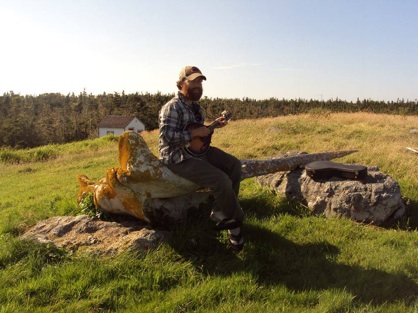marine organism-environment interaction
Research Interests
My research interests are focused on patterns of local adaptation and genetic diversity in seabird populations. I am particularly interested in how physiology and sensory cues in seabirds underlie behavioral and evolutionary mechanisms that can lead to genetic diversity across seabird colonies.
For my PhD research, I am investigating patterns of selection in Major Histocompatibility Complex (MHC) class IIB gene loci. MHC genes may be used as a proxy to assess the adaptive genetic diversity in wild populations, as allele diversity in MHC genes may represent strong adaptive selection in response to infectious diseases and pathogens. Additionally, MHC genes are thought to influence the individual odor of some species, and consequently may play a role in mate choice and kin recognition.
I am currently working with Leach’s storm petrels, a small and widely-spread seabird species that breeds on island colonies in the north Pacific and north Atlantic. These birds are notable for their broad pelagic foraging, strong fidelity to their breeding colonies, and well-developed sense of smell. This combination of traits make storm petrels an excellent model for associating patterns of adaptive (MHC) and neutral genetic diversity with demographic, biogeographic, and evolutionary information.
Stats
name BRIAN HOOVER
GRADUATE GROUP ECOLOGY
RESEARCH SEABIRD EVOLUTION/ECOLOGY
About Brian Hoover
Brian Hoover is a PhD candidate in the Graduate Group in Ecology. Originally from Colorado, Brian moved further west after graduation and have since roamed as an itinerant biologist and graduate student throughout California and Alaska. He previously studied the habitat associations and at-sea distribution of seabirds in the Bering Sea for his Master’s degree at Moss Landing Marine Labs, and he is currently conducting colony work in Nova Scotia, Canada, and at other various locations.
Education
BS Zoology; Colorado State University (2005)
MS Marine Science; Moss Landing Marine Labs (2012)



